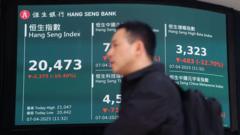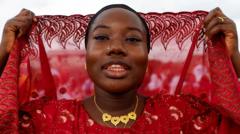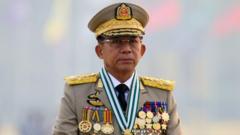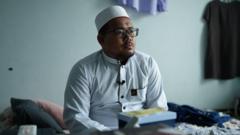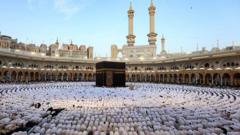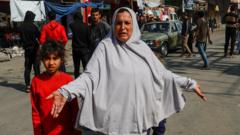In the wake of Bangladesh's recent political upheaval, the spirit of Ramadan and communal iftar gatherings have become pivotal for burgeoning political alliances, reflecting the shifting dynamics in the country's leadership landscape.
Iftar Parties: A Political Stage for Bangladesh's Future Leaders

Iftar Parties: A Political Stage for Bangladesh's Future Leaders
As Ramadan unfolds in Dhaka, political parties seize the moment of communal iftar gatherings to explore potential alliances after a significant political shift.
In Bangladesh's bustling capital, Dhaka, a unique spectacle occurs at sunset during the holy month of Ramadan. The usually frenetic streets of this metropolis, home to over 10 million people, become remarkably tranquil, marking an important time for political maneuvering. As citizens prepare for iftar, the evening meal that breaks the daily fast, political entities recognize this moment as a vital opportunity to shape future coalitions.
Recent iftar parties have been particularly scrutinized, serving as barometers for the alliances formed in the aftermath of the previous summer’s ouster of the authoritarian regime led by Prime Minister Sheikh Hasina. Observers paid close attention to which political figures attended these gatherings and who they mingled with, as such associations signal potential future partnerships in a country currently navigating a political vacuum.
In a recent gathering hosted at a trendy rooftop restaurant by Gono Odhikar Parishad, a fledgling political party born from earlier student protests, the atmosphere was charged with anticipation about the nation's direction. This party is part of a wave of new political movements emerging as a response to the changing tides of governance and public sentiment.
The iftar gatherings do more than fill stomachs; they provide a vital forum for dialogue and the formation of new alliances amidst a backdrop of political unrest. With the fall of the former prime minister, observers are keen to interpret the interactions and seating arrangements at these events as reflections of shifting geopolitical influences and alliances that might shape Bangladesh's future trajectory.
As Ramadan progresses, the significance of these iftar parties will only grow, highlighting the interplay of culture and politics in a nation searching for stability and direction.








